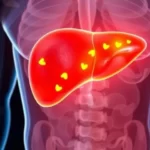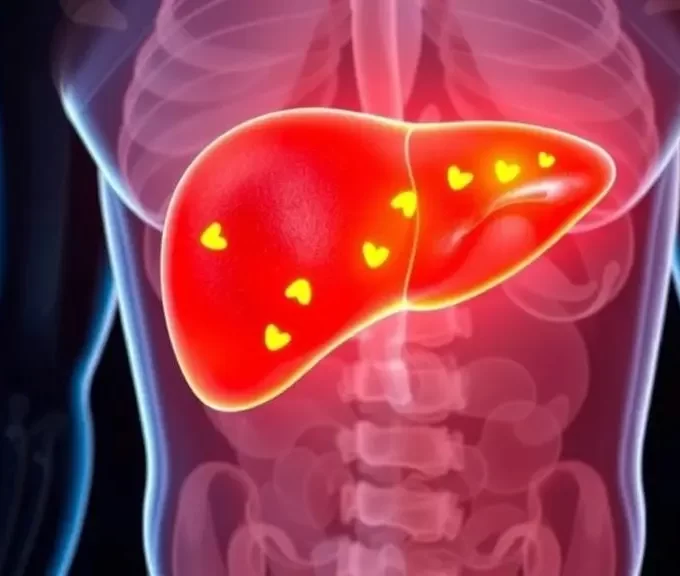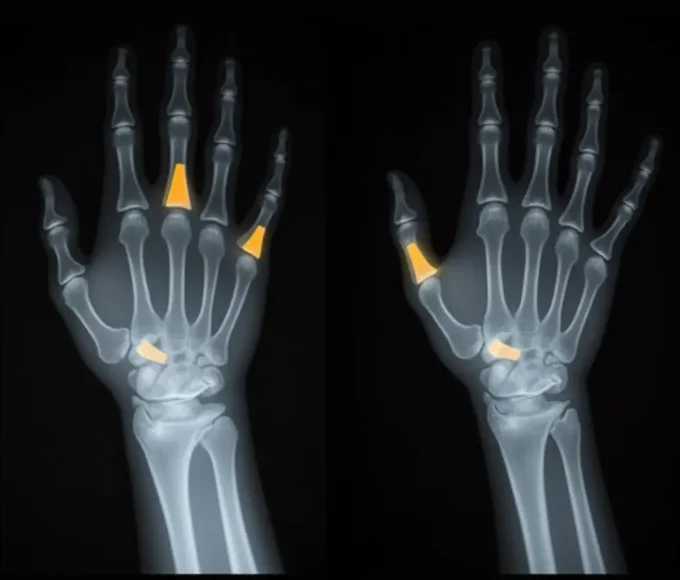Cold sores, also called fever blisters, are painful, fluid-filled eruptions that typically appear around the lips, nose, or chin. Caused by the Herpes Simplex Virus type 1 (HSV‑1), these lesions are more than just a cosmetic nuisance; they can impact daily life through discomfort, social embarrassment, and repeated outbreaks. While conventional medicine primarily offers symptom control through antiviral medications, many individuals now seek an integrated, natural solution, which is where cold sores treatment in homeopathy comes in.
Homeopathy provides a holistic, individualized approach that doesn’t simply suppress symptoms but aims to address the root cause, such as immune weakness, stress reactivity, and environmental triggers. By enhancing the body’s natural defenses, homeopathy offers a pathway to both acute symptom relief and long-term management of herpes simplex virus outbreaks.
What is the Nature of Cold Sores
The typical cold sore begins subtly with a tingling, itching, or burning sensation around the lips or nostrils. Within 24 to 48 hours, clusters of tiny blisters erupt, gradually breaking open, crusting, and healing over a week or two. While the first outbreak may come with flu-like symptoms, fever, swollen glands, or sore throat, subsequent flare-ups tend to be milder yet chronically recurring.
This recurrence is a hallmark of HSV-1. Once inside the body, the virus remains dormant in nerve cells and reactivates during moments of vulnerability: stress, fatigue, fever, hormonal shifts, or even sunlight exposure. The cyclic nature of the condition means a curative strategy must go beyond skin-level care; it must address internal susceptibility.
Causes of Cold Sores
Cold sores are caused by the Herpes Simplex Virus type 1 (HSV‑1), a contagious virus that most people are exposed to during childhood. Less commonly, HSV‑2 (typically linked to genital herpes) can also cause facial cold sores.
Once the virus enters the body, it remains dormant in the nerve cells, waiting to be reactivated. Several factors can trigger reactivation, including:
- Emotional stress or anxiety
- Fever (hence the term “fever blister”)
- Illnesses that tax the immune system
- Sun exposure or windburn
- Hormonal changes (e.g., menstruation)
- Dental procedures or skin trauma
- Fatigue and sleep deprivation
Even without visible sores, HSV can still spread, making prevention strategies essential.
Symptoms of Cold Sores
Cold sores often follow a predictable progression. Here’s what you might experience:
- Prodrome Phase – Tingling, itching, or burning sensations near the lips or nose may begin 1–2 days before visible blisters appear.
- Blister Stage – Small, fluid-filled blisters emerge, often grouped together at the lip border or nose.
- Oozing and Crusting – Blisters may burst, leaving open sores that ooze, then dry and scab over.
- Healing Phase – The scabs shrink and flake off, typically within 7 to 14 days.
First-time outbreaks may also cause systemic symptoms such as:
- Fever
- Sore throat
- Swollen lymph nodes
- Headache or body aches
- Painful gums
Risk Factors for Cold Sores
Most people carry HSV-1, but not everyone experiences visible outbreaks. You’re more likely to get recurrent cold sores if:
- You have a weakened immune system (e.g., HIV/AIDS, chemotherapy, immunosuppressants)
- You suffer from chronic stress or anxiety
- You’re exposed to sunlight or harsh weather frequently
- You have atopic dermatitis (eczema) or other skin conditions
- You share items like razors, towels, or lip products during someone’s active outbreak
- You’re pregnant or experiencing hormonal shifts
Children under five may also show symptoms inside the mouth, often mistaken for canker sores
How Homeopathy Views and Treats Cold Sores
Homeopathy doesn’t treat “cold sores” as a generic disease. Instead, it considers each outbreak as a manifestation of individual imbalance. Practitioners study a person’s physical tendencies, emotional patterns, immune history, and even weather sensitivities before prescribing a remedy. The selected medicine stimulates the body’s vital force, encouraging it to correct the underlying dysfunction that allows the virus to re-emerge.
Homeopathic remedies are energetic medicines, often prepared from plants, minerals, or biological materials, and they are administered in highly diluted potencies. This makes them safe, gentle, and suitable for all age groups, including pregnant women and children.
Top Most Effective Homeopathic Remedies for Cold Sores
Homeopathy offers a targeted approach to cold sore treatment by addressing not just the visible blisters but the internal triggers behind them. Each remedy is chosen based on individual symptoms, emotional state, and environmental sensitivities. Below are the most effective homeopathic solutions that provide both immediate relief and long-term prevention of herpes simplex outbreaks.
Natrum Muriaticum
This is one of the most essential constitutional remedies for people with chronic herpes outbreaks. Cold sores appear at the corners of the mouth, around the nostrils, or even in the genital region. A person needing this remedy often has a history of emotional suppression, particularly grief. They may crave salt, feel worse in the sun, and be prone to migraines or anemia.
Rhus Toxicodendron
When vesicles are small, itchy, and burn intensely, especially after fevers or physical exertion, Rhus tox offers excellent relief. It suits restless people, worse in damp weather, and they find relief with warmth.
Hepar Sulphuris Calcareum
Indicated when the sores are excruciating to touch and form pus. These individuals are very cold-sensitive, irritable, and prone to infected skin eruptions. Even a slight draft worsens their condition.
Arsenicum Album
Used for cold sores that burn severely, yet are relieved by warm applications. The person may appear anxious, exhausted, and very meticulous. Sores often occur during or after emotional strain or cold exposure.
Graphites
When cold sores ooze a sticky, honey-like discharge and crust over with cracks, Graphites is the remedy of choice. These individuals often struggle with multiple skin conditions and dry, rough patches elsewhere on the body.
Apis Mellifica
Perfect for herpes lesions that are swollen, shiny, red, and hot, and relieved by cold applications. The area may feel itchy or sting like a bee bite—true to the nature of the remedy itself.
Mercurius Solubilis
For ulcerated, foul-smelling cold sores that worsen at night, especially in those with inflamed gums and offensive breath. These individuals may sweat excessively and react to even slight temperature changes.
Mezereum
This is particularly useful when crusts become thick, yellowish, and painful, with a white, cheesy discharge underneath, often used when cold sores alternate with neuralgic pain.
Petroleum and Thuja
These are deeper-acting remedies for chronic, stubborn herpes cases, particularly in people with dry, cracked skin or a tendency toward recurring infections.
When to Take Which Remedy?
The art of remedy selection in homeopathy is highly nuanced. For acute flare-ups, use a 30C potency of the closest matching remedy 2–3 times a day. For chronic or recurring herpes, a constitutional remedy in 200C or higher (under supervision) is recommended. Always observe the response before redosing.
Lifestyle Support & Prevention: What You Can Do
- Hydration: Drink plenty of fluids to support immune detoxification.
- Sun Protection: Use SPF lip balms if sunlight triggers outbreaks.
- Stress Management: Incorporate yoga, mindfulness, or gentle exercise.
- Nutritional Support: Increase intake of lysine-rich foods (dairy, fish, legumes) and reduce arginine-rich foods (nuts, chocolate).
- Avoid Sharing: Don’t share razors, lipsticks, or eating utensils during an active outbreak.
Conclusion
Choosing cold sore treatment in homeopathy is not just about avoiding chemicals; it’s about fostering internal balance and resilience. With the correct remedy, your body becomes stronger, less reactive to triggers, and more capable of handling the virus quietly. For those suffering from recurrent flare-ups, homeopathy offers both immediate comfort and long-term hope.
FAQs
What homeopathic is suitable for cold sores?
Natrum Muriaticum, Rhus Toxicodendron, and Hepar Sulphuris are among the most effective remedies, depending on your symptoms and triggers.
How to holistically treat cold sores?
A holistic approach includes homeopathic remedies, immune-boosting nutrition, stress reduction, sun protection, and maintaining good hygiene.
What is the fastest cure for cold sores?
Taking a homeopathic remedy at the tingling stage—such as Natrum Mur—along with topical care like Calendula ointment, can stop progression quickly.
What vitamin am I lacking if I get cold sores?
Deficiencies in Vitamin B12, Vitamin C, or zinc are common among those with frequent cold sores. Supporting your immune system is key.











